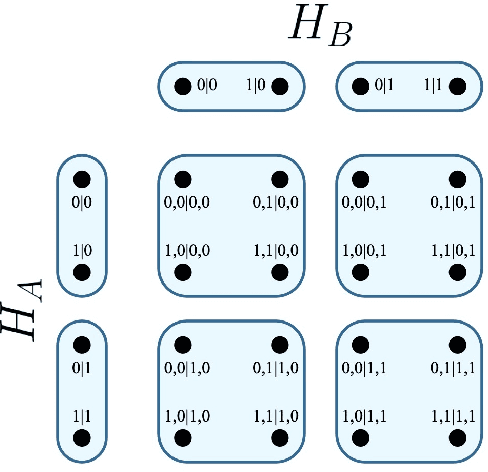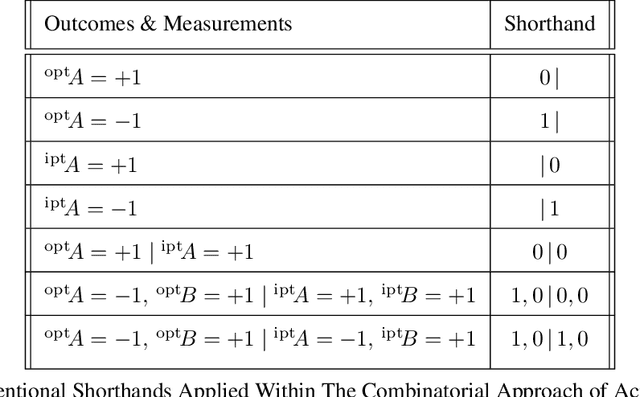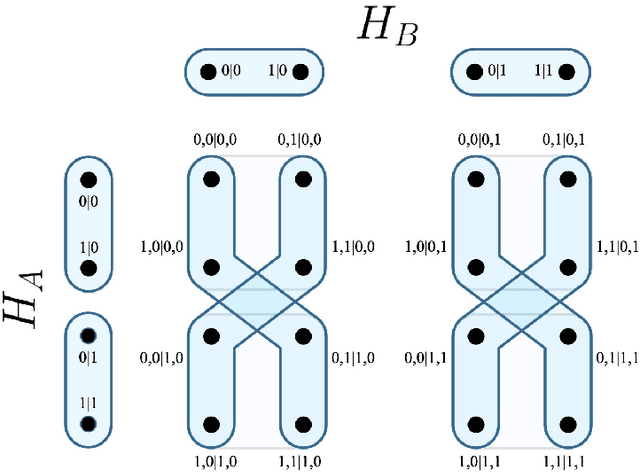Axel Bruns
An Extension Of Combinatorial Contextuality For Cognitive Protocols
Feb 15, 2022



Abstract:This article extends the combinatorial approach to support the determination of contextuality amidst causal influences. Contextuality is an active field of study in Quantum Cognition, in systems relating to mental phenomena, such as concepts in human memory [Aerts et al., 2013]. In the cognitive field of study, a contemporary challenge facing the determination of whether a phenomenon is contextual has been the identification and management of disturbances [Dzhafarov et al., 2016]. Whether or not said disturbances are identified through the modelling approach, constitute causal influences, or are disregardableas as noise is important, as contextuality cannot be adequately determined in the presence of causal influences [Gleason, 1957]. To address this challenge, we first provide a formalisation of necessary elements of the combinatorial approach within the language of canonical9 causal models. Through this formalisation, we extend the combinatorial approach to support a measurement and treatment of disturbance, and offer techniques to separately distinguish noise and causal influences. Thereafter, we develop a protocol through which these elements may be represented within a cognitive experiment. As human cognition seems rife with causal influences, cognitive modellers may apply the extended combinatorial approach to practically determine the contextuality of cognitive phenomena.
 Add to Chrome
Add to Chrome Add to Firefox
Add to Firefox Add to Edge
Add to Edge